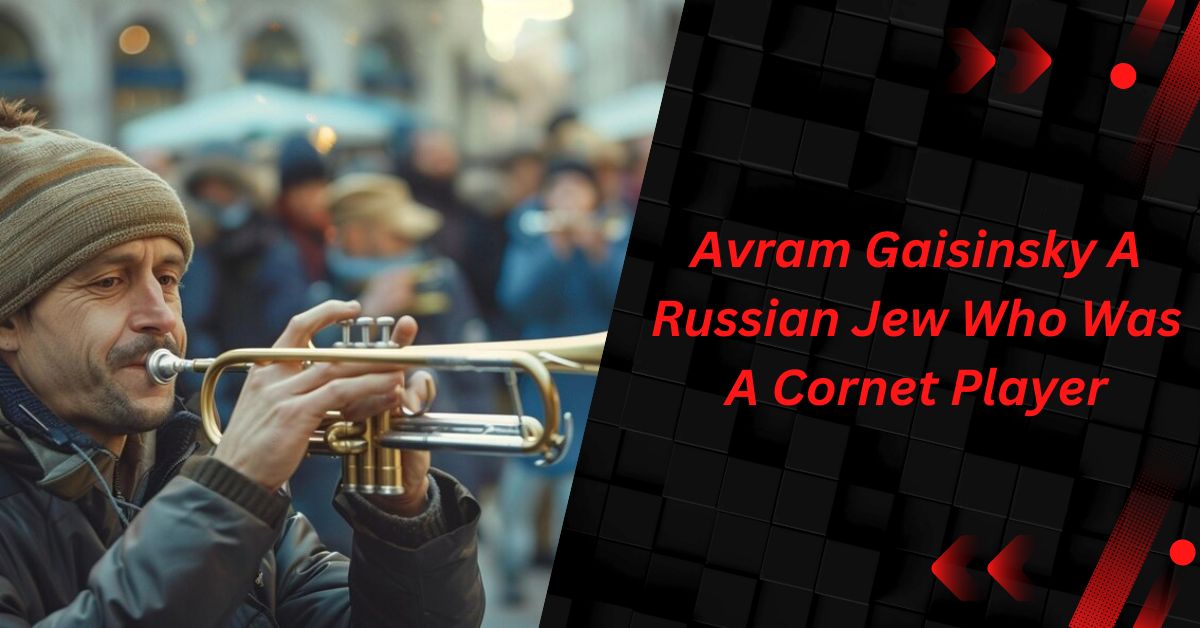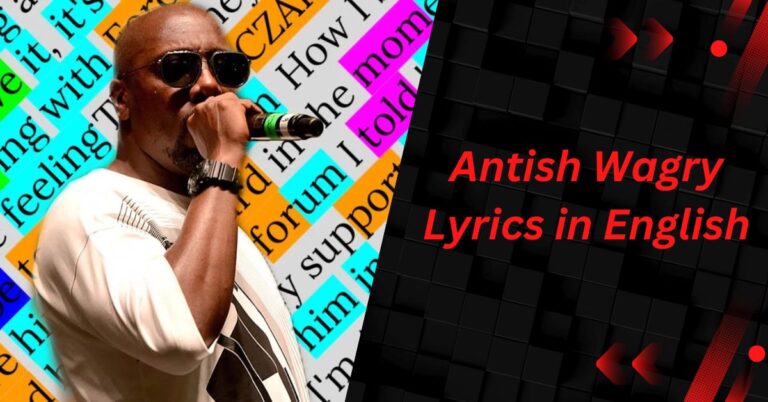Avram Gaisinsky A Russian Jew Who Was A Cornet Player – A Tale Of Musical Triumph!
The story of Avram Gaisinsky, a Russian Jew who was a cornet player, is one of resilience, talent, and the pursuit of excellence in the face of adversity.
From humble beginnings to achieving musical stardom, Avram Gaisinsky’s life serves as a testament to the power of passion and perseverance. His journey is not just about the music but also about the cultural and historical context that shaped his life and career.
This article will delve deep into the life of Avram Gaisinsky, a Russian Jew who was a cornet player, exploring his origins, his rise to fame, and the legacy he left behind.
Early Life of Avram Gaisinsky
Avram Gaisinsky was born in a small town in Russia during a time of significant social and political upheaval. As a Jew in Russia, Avram faced numerous challenges, including widespread anti-Semitism, restrictive laws, and limited opportunities.
Despite these obstacles, Avram’s family recognized his innate musical talent from a young age.
Family and Cultural Background
Avram’s family was deeply rooted in Jewish traditions, and music played an essential role in their daily lives. Growing up, Avram was exposed to a variety of musical styles, from traditional Jewish folk songs to classical music. This diverse musical environment would later influence his unique style as a cornet player.
Discovering the Cornet
Avram’s first encounter with the cornet was a defining moment in his life. The brass instrument, with its bright and expressive sound, captivated young Avram, and he quickly became determined to master it.
However, formal musical training was not readily available to someone of his background, so Avram relied on his determination and natural ability to learn.
Challenges Faced by Avram Gaisinsky
Overcoming Anti-Semitism
As a Jew in Tsarist Russia, Avram Gaisinsky faced systemic discrimination. Jews were often marginalized and restricted to living in designated areas known as the Pale of Settlement.
Opportunities for Jews in the arts and professional fields were severely limited. Despite these barriers, Avram pursued his passion for music with unwavering resolve.
Limited Access to Education
Avram’s pursuit of musical excellence was further hampered by the lack of formal education opportunities for Jews. Music conservatories and academies were largely inaccessible to Jewish students. Nevertheless, Avram sought out informal lessons and practiced tirelessly, honing his skills through sheer willpower.
Financial Struggles
Growing up in a poor family, Avram had to juggle his passion for music with the need to contribute to his household’s income.
He took on various odd jobs while continuing to practice the cornet. These experiences not only shaped his character but also deepened his commitment to his musical aspirations.
Avram Gaisinsky’s Rise to Musical Prominence
Breaking Through Barriers
Avram’s talent eventually caught the attention of local musicians, and he began performing in small concerts and community events.
His performances were marked by his emotive playing and technical proficiency, which set him apart from his peers. Word of his talent spread, and he soon found opportunities to perform in larger venues.
Joining a Professional Orchestra
Avram’s big break came when he was invited to join a professional orchestra. This opportunity was a significant milestone, as it marked his transition from a struggling musician to a recognized artist. His performances with the orchestra were widely praised, and he quickly became a sought-after soloist.
International Recognition
As Avram’s reputation grew, so did his opportunities to perform abroad. He embarked on a series of international tours, where he captivated audiences with his unique interpretation of classical and contemporary works.
His ability to infuse traditional Jewish musical elements into his performances made him a distinctive and celebrated figure in the world of classical music.
Avram Gaisinsky’s Musical Style and Influence
Fusion of Jewish and Classical Traditions
One of the most remarkable aspects of Avram Gaisinsky’s music was his ability to blend Jewish musical traditions with classical compositions. This fusion created a unique sound that resonated with diverse audiences.
His performances were not just about technical mastery but also about conveying deep emotional and cultural narratives through music.
Innovations in Cornet Playing
Avram was known for his innovative techniques on the cornet. He experimented with different tones, rhythms, and dynamics, pushing the boundaries of what the instrument could achieve.
His contributions to the development of cornet playing had a lasting impact on future generations of musicians.
Mentorship and Teaching
Later in his career, Avram dedicated himself to teaching and mentoring young musicians. He believed in the importance of passing on his knowledge and skills to the next generation.
Many of his students went on to become successful musicians, and they carried forward Avram’s legacy of excellence and innovation.
The Legacy of Avram Gaisinsky
Cultural Impact
Avram Gaisinsky’s influence extended beyond music. As a prominent Jewish musician, he became a symbol of resilience and cultural pride for the Jewish community.
His success challenged the stereotypes and limitations imposed on Jews in Russia and inspired others to pursue their dreams despite societal barriers.
Preservation of Jewish Music
Through his performances and recordings, Avram played a crucial role in preserving and promoting Jewish music. His work ensured that traditional Jewish melodies and themes were not lost to time but instead integrated into the broader musical canon.
Recognition and Honors
Avram’s contributions to music were recognized with numerous awards and honors. He received accolades from music societies, cultural organizations, and governments, both in Russia and internationally. These recognitions were a testament to his talent and the significant impact he had on the world of music.
Avram Gaisinsky’s Later Years and Personal Life
Personal Struggles
Despite his professional success, Avram’s personal life was marked by challenges. The pressures of fame, combined with the ongoing political instability in Russia, took a toll on his health and well-being. However, he remained dedicated to his music, even as he faced personal hardships.
Retirement and Reflection
In his later years, Avram gradually retired from performing and focused more on composing and teaching. He spent much of his time reflecting on his life’s journey, the challenges he had overcome, and the legacy he hoped to leave behind. His compositions during this period were deeply introspective and often revisited themes from his early life.
Death and Posthumous Recognition
Avram Gaisinsky passed away at the age of [insert age]. His death was mourned by the global music community, and his contributions were celebrated in numerous memorial concerts and events. Posthumously, Avram’s work continued to be studied and performed, ensuring that his legacy lived on.
Avram Gaisinsky’s Influence on Modern Musicians
Inspiring Future Generations
Avram Gaisinsky’s life and work continue to inspire musicians today. His story is often cited as an example of how passion and perseverance can overcome even the most formidable obstacles. Modern cornet players, in particular, look to Avram as a pioneer who expanded the possibilities of the instrument.
Continued Relevance of His Music
Avram’s compositions and interpretations remain relevant and are still performed in concerts around the world. His ability to blend different musical traditions has made his work timeless, appealing to audiences across generations.
Educational Contributions
Avram’s teachings have been preserved in various forms, including written scores, recordings, and personal accounts from his students. These resources continue to be valuable educational tools for musicians and scholars studying the history of Jewish music and the evolution of cornet playing.
FAQs About Avram Gaisinsky, a Russian Jew Who Was a Cornet Player
Q1: What made Avram Gaisinsky’s music unique?
A: Avram Gaisinsky’s music was unique due to his ability to blend Jewish musical traditions with classical compositions. His innovative techniques on the cornet and his emotive playing style set him apart from other musicians of his time.
Q2: What challenges did Avram Gaisinsky face as a Jewish musician in Russia?
A: Avram faced significant challenges, including anti-Semitism, limited access to formal education, and financial struggles. Despite these obstacles, he pursued his passion for music and achieved international recognition.
Q3: How did Avram Gaisinsky contribute to the preservation of Jewish music?
A: Through his performances and recordings, Avram helped preserve and promote Jewish music. He integrated traditional Jewish melodies into his work, ensuring that these cultural expressions were maintained and celebrated.
Q4: What is Avram Gaisinsky’s legacy?
A: Avram Gaisinsky’s legacy includes his contributions to the development of cornet playing, his role in preserving Jewish music, and his influence on future generations of musicians. His life and work continue to inspire and resonate with audiences today.
Q5: Where can I listen to Avram Gaisinsky’s music?
A: Avram Gaisinsky’s music can be found in various archives, recordings, and performances by modern musicians. Some of his compositions and interpretations are available on music streaming platforms, as well as in collections of Jewish and classical music.
Conclusion
Avram Gaisinsky, a Russian Jew who was a cornet player, lived a life that transcended the limitations imposed by his time and circumstances. His journey from humble beginnings to international acclaim is a powerful reminder that talent knows no borders.
Through his music, Avram not only entertained but also preserved and promoted the rich cultural heritage of his people. His legacy continues to inspire and influence musicians and audiences around the world.






